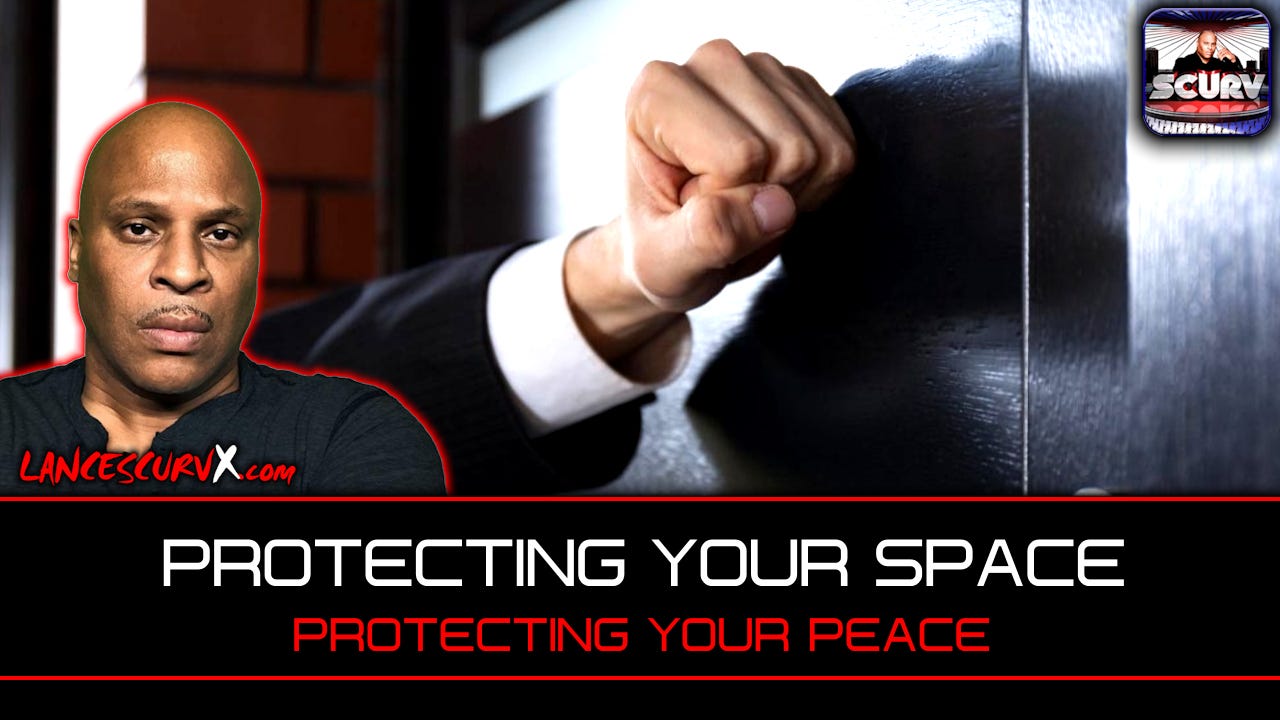BEHIND CLOSED DOORS...
PROTECTING YOUR SPACE, PROTECTING YOUR SOUL
The doorbell rings.
You freeze.
Something in you tightens—barely noticeable—but it’s there. You take a deep breath, force a smile, open the door. You greet them warmly, but inside? A part of you steps back.
Their voice fills the room. They’re friendly. They’re polite. But the air in your home shifts. It’s not heavy, not hostile… just not yours anymore.
You laugh. You ask about their day. You do everything “right.” But behind your eyes there’s this quiet voice saying:
I want my space back.
And when they leave? That silence that returns… it feels like oxygen. You stand there wondering why you feel so drained—like somebody unplugged your spirit and walked away with it.
It’s Not That You Hate People
You’re not ungrateful. You’re not antisocial.
But when someone crosses your threshold, they don’t just bring their words—they bring their energy. Unspoken tension. Hidden stories. Spiritual weight.
A home is more than four walls—it’s a symbol of your inner life. Your front door isn’t just wood and hinges—it’s a sacred boundary between you and the rest of the world.
For sensitive souls—especially introverts and empaths—solitude isn’t avoidance. It’s a necessity. It’s where you regenerate, remember yourself, and reconnect with your core.
So when a visitor steps in, something inside you whispers:
“Not yet. I’m still healing.”
The Energy Shift
An extrovert gets energy from the world. Social contact fuels them.
An introvert? The opposite.
For us, solitude is where the light comes back on. Stillness restores us. Silence isn’t emptiness—it’s medicine.
So even a kind, friendly visit can create a seismic shift in your spirit. Their rhythm isn’t your rhythm. Their frequency isn’t yours. And suddenly, your mind feels hijacked.
You start performing. Smiling when you’re tired. Keeping conversation going when your soul wants quiet. You’re no longer resting—you’re managing.
The Persona Trap
The persona is the mask we wear to fit into the world.
It’s not fake, but it’s not the whole truth.
The persona smiles when the soul is exhausted.
It entertains when the spirit wants silence.
It plays host when the heart just wants peace.
And if you wear it too long, you forget how to take it off. Your house stops being a sanctuary and becomes a stage. Every room is a scene:
The living room: the performance zone.
The kitchen: preparation for the act.
The bathroom: the only place to breathe for 30 seconds.
When they finally leave, you don’t just feel tired—you feel hollow.
The Shadow
Then there’s the shadow—the part of you you’ve been told not to feel, not to express. It holds anger, grief, old wounds, and forgotten truths.
Your shadow sits quietly in your home, undisturbed… until someone enters.
They don’t mean harm, but their presence stirs something buried. A look. A tone. A harmless comment. And suddenly, you feel that tightness in your chest. You’re polite, but inside, you’re pulling away.
Discomfort is not random. It’s not about being antisocial or arrogant. It’s about protecting something inside you that’s still tender.
Your Home Is You
Your house is more than walls—it’s a psychological blueprint:
Bedroom: intimacy, dreams, vulnerability.
Living Room: your social skin.
Kitchen: emotional nourishment.
Attic: forgotten thoughts.
Basement: buried traumas.
When someone steps in, they’re not just walking into a building—they’re stepping into your symbolic self.
And if you’re still repairing parts of that inner architecture, every visit risks knocking something loose.
The Hermit’s Wisdom
There’s an ancient archetype known as the Hermit—not as a lonely figure, but as the soul’s instinct to withdraw for wisdom and healing.
The hermit doesn’t run from life—he steps back to rebuild.
When you feel that pull to cancel plans, to not answer the knock, it’s not weakness. It’s your inner hermit saying:
“Come home—not just to your house, but to yourself.”
Permission to Close the Door
We live in a culture that worships availability. Be social. Be agreeable. Be visible.
And when you step back, people take it personally. But it’s not about them—it’s about you.
Saying “no” isn’t rejection—it’s direction. It’s choosing peace over performance. Stillness over noise.
If you don’t protect your energy, no one else will.
Sacred Practices for Protecting Your Energy
Listen to your body first. Tight chest? Shallow breath? That’s your answer before your mind even catches up.
Honor the “no.” No explanation needed. The feeling is enough.
Create sacred space. Silence in the morning. No guests after a certain hour.
Speak it plainly. “I need time for myself” is not rude—it’s honest.
Understand the cost. Every time you override your needs for politeness, you pay with spiritual energy.
This Is Not Selfishness—It’s Sovereignty
Your home is not a stage.
Your mind is not a waiting room.
Your soul is not public property.
You are allowed to keep the door closed.
This isn’t bitterness. It’s protection.
It’s not loneliness—it’s integration.
It’s not hiding—it’s healing.
Because when you honor your silence, when you stop performing for the comfort of others, you return to yourself—whole, unshaken, and real.
So the next time you feel that urge to retreat, honor it.
It’s not a flaw—it’s your soul speaking.
And the most sacred conversations you’ll ever have…
Will happen behind that closed door.




Cant wait to watch/read this one dealing with right now.........